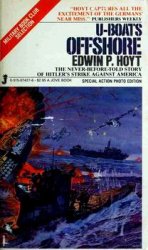In a narrow sense, the Marshall Plan was not long-lived. With the outbreak of the Korean War in June 1950, the American political establishment began a swift rearmament program and pushed the Europeans to do the same. Prices of commodities soared and the hard-pressed Europeans once again found themselves facing dollar shortfalls, budget deficits, and inflation - the very conditions the ECA had been designed to fix. The internal political environment in Washington also changed: Republicans gained seats in Congress and launched an attack on the multilateralist conceptions of Marshall aid. Congress created the Mutual Security Agency to replace the ECA, which it did at the end of 1951, and insisted that military rearmament be made the United States’ chief foreign aid goal.
For the next three years, the diplomacy between Europe and the United States focused on securing a German contribution to European defense. Only after a bitter dispute was agreement reached and in 1955, ten years after the end of World War II, West Germany was brought into the NATO alliance. The officers who had served in the ECA and had promoted economic integration as a solution to European recovery were saddened and alarmed to see how the ERP had become militarized. But in the end, Germany’s enrollment in NATO served the cause of European solidarity well: Germany turned out to be a vital partner in NATO, and the alliance knit European militaries closely together. Meanwhile, the Marshall Plan had helped generate momentum on a parallel track, toward genuine European economic integration, which took concrete form in the 1957 Treaty of Rome. It would take another thirty-five years before anything like a "united" Europe would be realized; and even today intense national rivalries over economic policy persist within Europe. Indeed, the construction of the West has not been easy or swift. What can be said is that the vision of a Europe closely bound together in common purpose, premised on democratic governance, the free exchange of goods and services, and enduring transatlantic ties to the United States has been more fully realized than anyone could conceivably have imagined when George Marshall sketched out a plan to help Europe at the Harvard commencement on June 5, 1947.




 World History
World History









